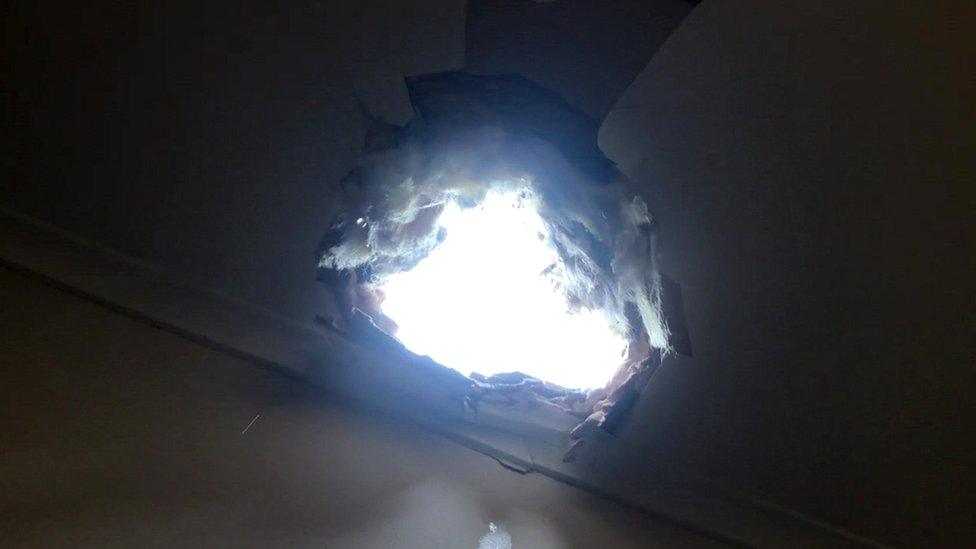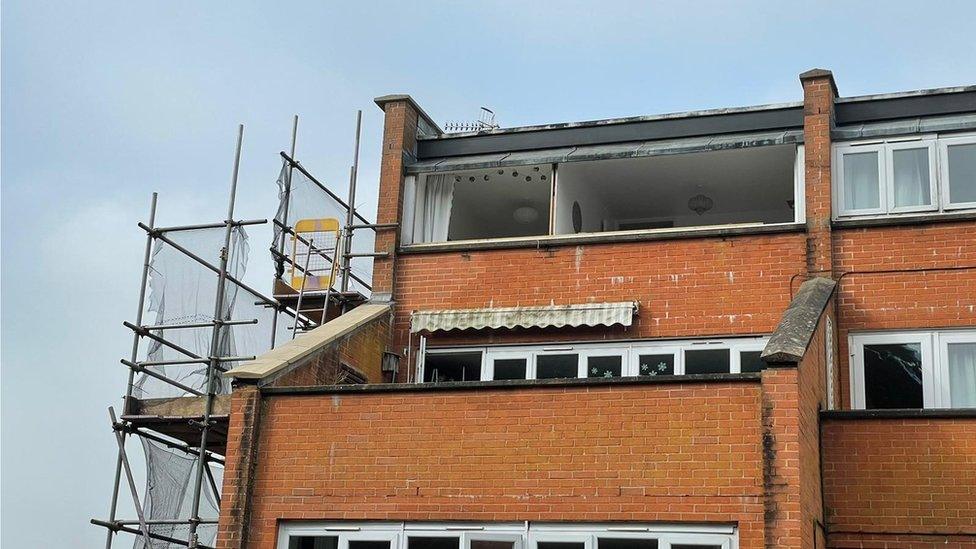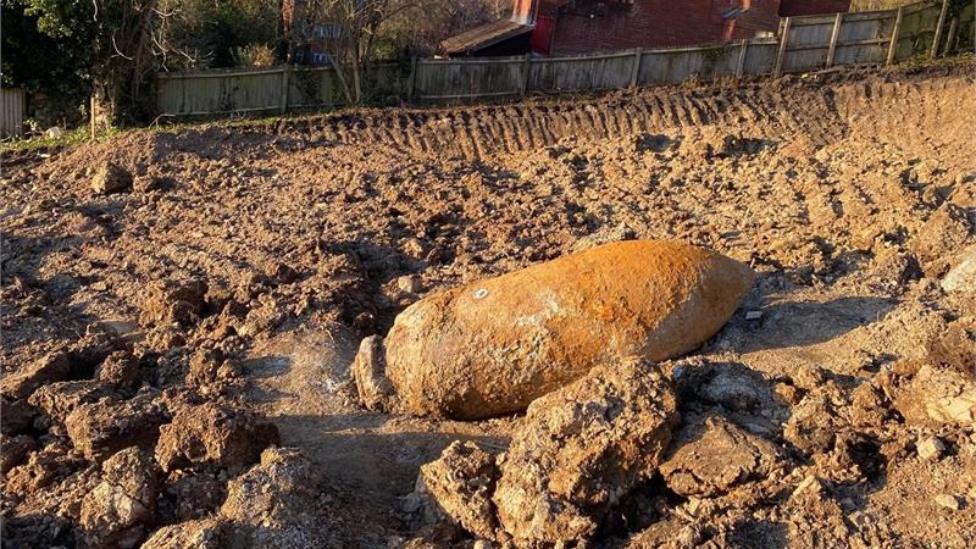Exeter WW2 bomb: Bomb damage unpreventable, says Army
- Published

The Exeter bomb was a "rare" one, said the Army
Damage caused to homes when a World War Two bomb was destroyed in a controlled explosion was "not possible to prevent", the Army has said.
Detonation of the 2,200lb (1,000kg) German bomb in Exeter on Saturday sent shrapnel flying into nearby homes.
The operation's commander said it had been unsafe to move the bomb.
Col Daniel Reyland said: "No matter how many mitigation measures are taken, it is not always possible to physically prevent all damage."
Hundreds of people were evacuated after the bomb was found on Friday.

Large metal girders were thrown into nearby homes by the force of the blast
Col Reyland said the bomb was one of only about 10 large air-dropped weapons dealt with every year.
It was of a type that the disposal team did not recall seeing for at least three years.
He said the "preferred solution" would have been removing it, but "as time passes this option is becoming increasingly less likely, as the bombs degrade in the ground".

One group of students came back to their property to find a hole in the roof
The disposal team put in hundreds of tonnes of sand to help reduce the effects of the blast, along with trenches to limit the "ground shock" of the explosion.
All 1,400 students evacuated are expected to have returned to their accommodation by the end of the week.

Windows and doors were blown out by the blast
A number of homes in Copplestone Road as well as a nearby care home were severely damaged, said Exeter City Council.
Council leader Philip Bialyk said the authority had been "providing around-the-clock security to help homeowners as they start to rebuild their lives".
Many of those affected had been allowed back to their properties.
He said homeowners were "getting to grips with the impact of the blast" and the council would "continue to support them".
Aerial footage of Exeter bomb exploding
Bomb disposal teams destroyed the device in a 400-tonne "box" of sand just before 18:15 GMT on Saturday in an explosion heard up to five miles (8km) away.
The city was heavily attacked by German bombers in 19 raids during World War Two, which saw more than 7,000 devices dropped, particularly in May 1942 during the Baedecker Raids, external.

Follow BBC News South West on Twitter, external, Facebook, external and Instagram, external. Send your story ideas to spotlight@bbc.co.uk, external.
Related topics
- Published4 March 2021

- Published2 March 2021

- Published1 March 2021

- Published28 February 2021

- Published27 February 2021

- Published26 February 2021
